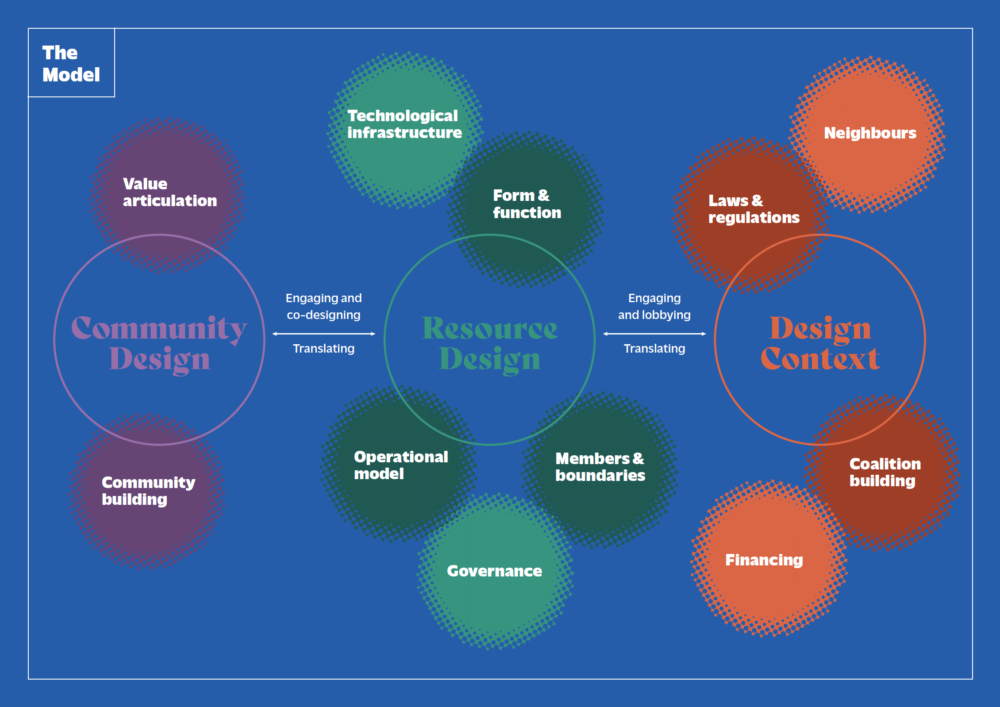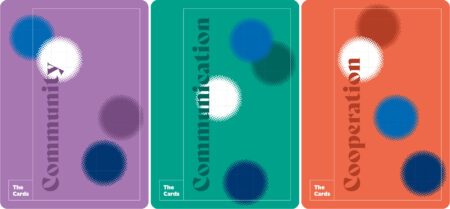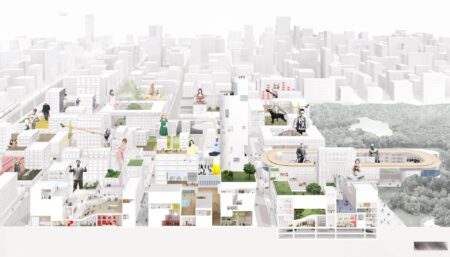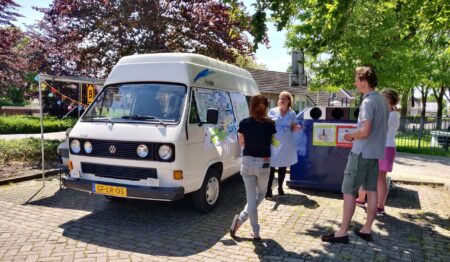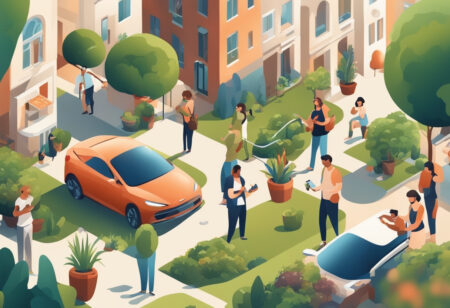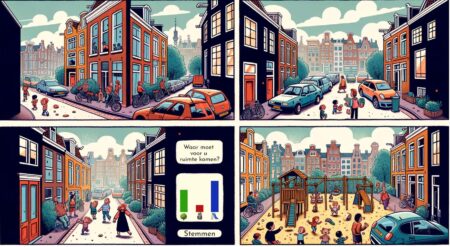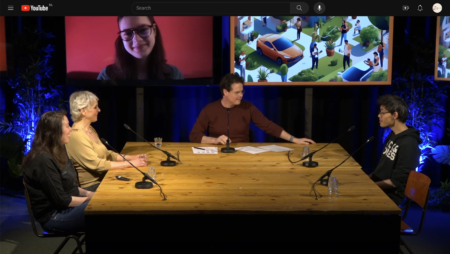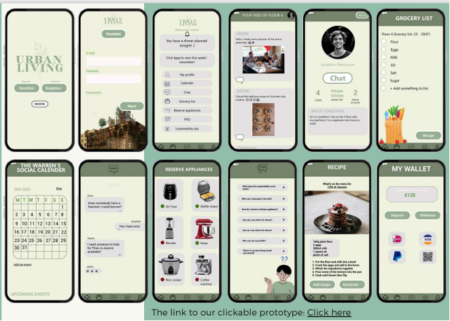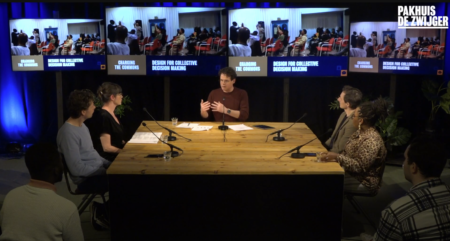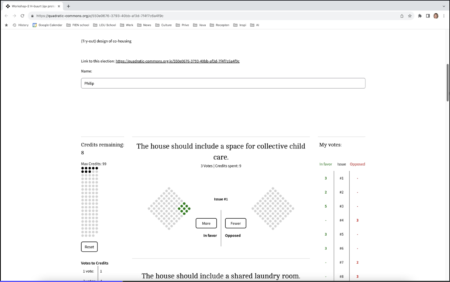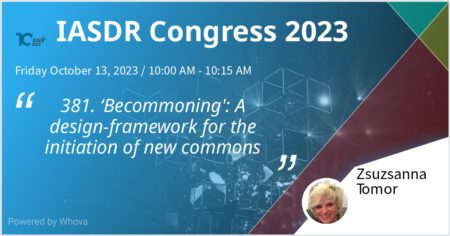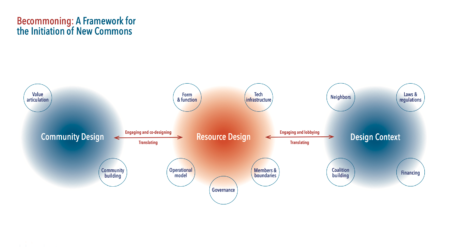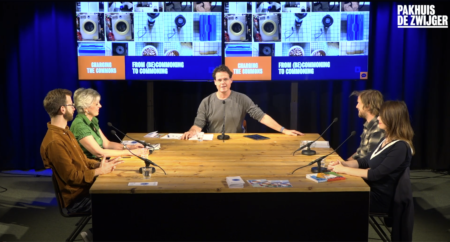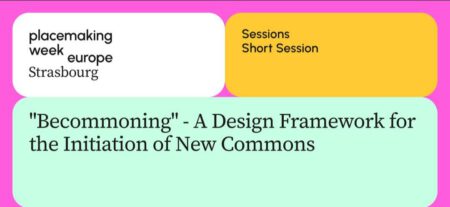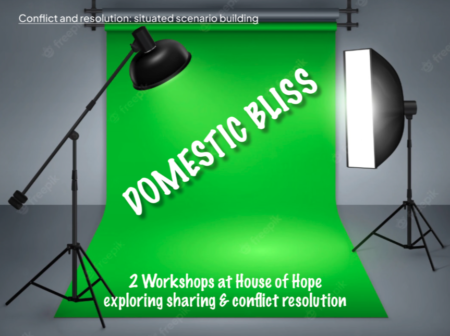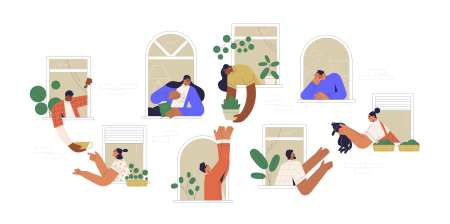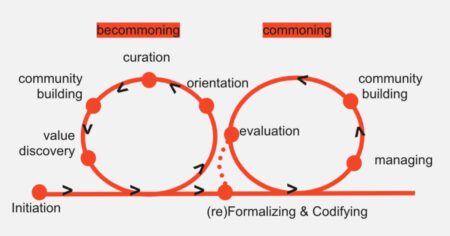The Be-commoning model provides a framework for designing new commons initiatives, which have seen a resurgence in the past two decades. These initiatives, such as energy cooperatives, community gardens, and collective housing, function as alternatives or complements to the market and state, aiming to enhance collective well-being, social relations, and sustainability.
Charging the Commons
Charging the Commons is a 2-year project that investigates the design of digital platforms for resource communities. The project explores how a Situated-design approach can be employed to articulate the (social) values of resource communities. In addition, the project examines how these values can be translated into a design for the management of an urban commons.
Design for Collective Decision-making
Exploring Quadratic Voting as a Tool for Deliberation and Decision Making in the Be-Commoning Process
Utility/Collectivity Card Deck
This card deck, developed by AUAS students, showcases possible features and functions that support collectivity in the design of digital platforms for the urban commons.
Becommoning bespiegeld: in gesprek met professionals #2 | Marthijn Pool (Space & Matter) en Marjolein Smeele (Common City)
Samen met een aantal praktijkpartners uit het project verkennen we de uitkomsten. Wat komt er kijken bij het ontwerpen van een urban commons? We spreken hierover met Marthijn Pool en Marjolein Smeele. Pool is medeoprichter van architectenbureau Space & Matter.
Becommoning bespiegeld: in gesprek met professionals #1 | Minouche Besters, Partner bij Stipo
Samen met een aantal praktijkpartners uit het Charging the Commons project verkennen we de uitkomsten. Wat komt er kijken bij het ontwerpen van een urban commons? We spreken hierover met Minouche Besters, van het bureau Stipo, een ‘publieke ontwikkelaar’ die werkt aan betere en aantrekkelijke steden en regio’s.
Final Event | What design can contribute to commoning
𝗧𝗵𝘂𝗿𝘀𝗱𝗮𝘆, 𝗝𝘂𝗹𝘆 𝟰𝘁𝗵 | 𝟭𝟱:𝟬𝟬-𝟭𝟳:𝟯𝟬 | 𝗔𝗛𝗞 𝗖𝘂𝗹𝘁𝘂𝗿𝗲 𝗖𝗹𝘂𝗯, 𝗠𝗮𝗿𝗶𝗻𝗲𝘁𝗲𝗿𝗿𝗲𝗶𝗻
After two years of research, we will present the conclusions of the Charging the Commons Research Project at this wrap-up event. Join us!
Pannel Discussion | Relational interface for more-than-human commons
𝗧𝗵𝘂𝗿𝘀𝗱𝗮𝘆, 𝗝𝘂𝗻𝗲 𝟭𝟯𝘁𝗵 | 𝟭𝟵:𝟯𝟬-𝟮𝟭:𝟬𝟬 | 𝗛𝗲𝘁 𝗡𝗶𝗲𝘂𝘄𝗲 𝗜𝗻𝘀𝘁𝗶𝘁𝘂𝘂𝘁
Join us to explore how design can contribute to the technological and organisational conditions of a more-than-human consciousness.
Workshop | Relational Interfaces Design
𝗙𝗿𝗶𝗱𝗮𝘆, 𝗝𝘂𝗻𝗲 𝟭𝟰𝘁𝗵 | 𝟬𝟵:𝟯𝟬-𝟭𝟳:𝟯𝟬 | 𝗛𝗲𝘁 𝗡𝗶𝗲𝘂𝘄𝗲 𝗜𝗻𝘀𝘁𝗶𝘁𝘂𝘂𝘁
How can society operate in more relational ways, reflecting our deep entanglements as humans with each other and the more-than-human world around us, and allow us to act in relationships of mutual care?
‘The City as a License: Design, rights and civics in a blockchain society’ for Big Data & Society
AUAS – Civic Interaction Design Research Group has led the development of a special issue for Big Data & Society. “The issue is titled: The City as a License: Design, Rights and Civics in a Blockchain Society”. All contributions are available Open-Access and can be read here.
Paper | Commons-enabling digital platform technologies in practice: the case of carsharing communities in The Netherlands
The second scientific article resulting from our research project has been accepted by the Architecture Media Politics Society Conference ”Urban Futures – Cultural Pasts” to be held in Barcelona.
Verslag workshop Charging the Commons: Het ontwerp van digitale platformen voor de commons
Hoe ontwerp je een digitaal platform voor een commons als een autodeel-gemeenschap, die niet alleen functioneel is en het makkelijk maakt om een auto te reserveren, maar die tegelijkertijd ook de commons als gemeenschap versterkt? Die vraag stond centraal in de workshop die we op 4 april met partners uit het Charging the Commons-project hielden bij de HvA.
Student Prototypes of resource-sharing platforms for the commons
In the fall semester of 2023, students of the minor Het internet is stuk, maar we gaan het repareren, were asked to explore and design resource-sharing platform for the commons. The goal is to make a wide choice of electric cars and other forms of electric shared driving available in the neighborhood. When car owners switch to shared driving, parking spaces will be eliminated, and more space will be created in the neighborhood.”
Rondtafel | Platforms voor de commons
Bekijk de laatste aflevering van de Charging the Commons rondetafelserie, waarin we het hadden over hoe digitale technologieën de commons kunnen ondersteunen.
Digital enablers -apps- for sharing and managing community resources
In the last semester of 2022, students received an assignment to develop technology-based instruments that can support communities to share and manage their collective resources. This resulted in four apps in the domains of sharing food, spaces, mobility and “things”.
Roundtable | Design for collective decision-making
Watch the 2nd episode of the Charging the Commons Roundtable Series, which explored a challenge faced by emerging commons communities: deciding on a means to make decisions together.
Workshop | Quadratic Voting
Through our situated research, we noticed there is desire amongst resource sharing communities for collective decision-making procedures that speak to both local community values, and the broader principles of the commons. To explore this further designer-researcher Tara Karpinski conducted a workshop with members of the Community Land Trust H-buurt.
Paper | ‘Becommoning’: a design-framework for the initiation of new commons
Last October, Suzanna Tomor presented the paper “‘Becommoning’: a design-framework for the initiation of new commons” at the IASDR – International Association of Societies of Design Research. Read the full paper here.
Canvas | (Be)Commoning: A Framework for the Initiation of New Commons
This is a first iteration of the (Be)Commoning canvas – a framework that aims to provide insights for emergent resource communities and offer a useful tool for professional mediators / facilitators who can support commoners with an overarching guidance of becommoning.
Roundtable | Charging the Commons: From (Be)Commoning to Commoning
Watch the first episode of the Charging the Commons Roundtable Series, which centered around the process of becoming a commons
Workshop | Charging the Commons workshop at Placemaking Week Europe 2023
The Charging the Commons research team organized a workshop at the Placemaking Week Europe 2023, under the title “Becommoning” – a design framework for the initiation of new commons”. Click here to find out more.
Expert Session with Consortium Partners
On September 21, an expert session was hosted at the HvA as part of the Charging the Commons (CtC) project. The goal of this session was to explore how our research insights and frameworks can help further the impact of the work of the SMEs involved in the project.
Workshop | Domestic Bliss
Charging the Commons team organised a workshop to explore with the Community Land Trust (Bijlmer, Amsterdam) members what and how they want to share, within the context of an urban commons community
Becommoning – of hoe een commons een commons wordt
De afgelopen maanden heeft onderzoeker Suzanna Tomor literatuuronderzoek verricht naar de totstandkoming van collectieve woningbouwprojecten. Welke aspecten komen in dat proces aan bod, en wat zijn mogelijke succes- en faalfactoren?
Charging the Commons Research Cases
The Charging the Commons project investigates the design of the rules and (digital) tools for ‘resource communities’, also known as commons’. In this research, three cases have been identified so far: the H-buurt, De Warren and Commonwoods.
Circulate Movies
With the intention of documenting and disseminating the themes, research processes, and main outputs from the Circulate project, we created a series of short movies. Click here to watch.
